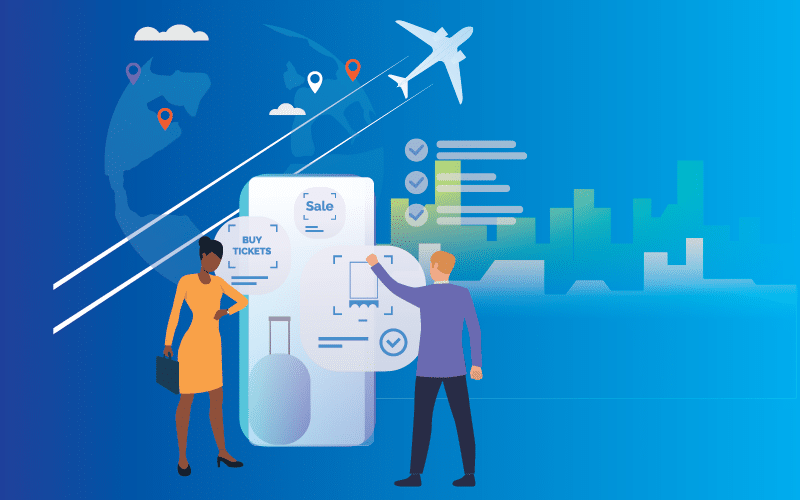AI in Travel: 5 Examples That Show How Travel Industry is Being Transformed By AI
We know how tedious it can be when planning a trip. You have to hunt for a cheap flight first, look up things and places to see, create a whole itinerary, checking out the visa process; the list of things you need to do when planning a trip is never-ending.
What if we told you that you can simplify this process by using the latest AI rage i.e. AI-powered services?
There is one catch though, you need to have a working internet connection to be able to take advantage of such a technology. For instance, an internet connection such as Xfinity, whether it’s a Wi-Fi connection or data plan, will allow you to access an AI-powered website to get tips on how to start packing. What’s even better is the 24/7 Xfinity customer service to make sure your internet is working smoothly.
Moving on, let’s explore how AI is being used in the travel industry to make the whole traveling experience easier and simpler.
AI Assistants for Booking Your Travels
No longer do you need to visit the local travel agency to book your flights and search for accommodations in the destination location.
There are AI assistants and chatbots that are now in place of travel agents to communicate with you about your travel plans, including flights, accommodation, vehicles for rent, etc. These chatbots are deployed on social media platforms to offer a personalized booking experience.
Travel platforms like Booking.com, Skyscanner, and Expedia have utilized chatbot technology in their operations. Share the details of your intended journey with the chatbot and you will be provided information about the best deals being offered.
If you want to go local, Cosmopolitan Hotel in Las Vegas has introduced a chatbot called Rose that provides recommendations of local restaurants, spas, or short trips to the hotel guests.
AI for Forecasting Flights
Such innovative technology as AI also has the ability to find the best flights at the perfect time. Budget travelers will find this feature to be incredibly useful; you will be provided with recommendations of the best and cheapest flights available, based on your preference.
For instance, a travel app called Hopper has the ability to predict optimal hotel prices and flights and present them to users based on their past activities. When a user is tracking flights on the Hopper app, the AI-powered platform lets the user know when to wait for a better flight or just go for the one that is available at the moment.
Hotels and airlines also utilize this feature in AI to modify their rates according to users’ demands.
Baggage Handling at the Airports
We have all heard stories about baggage complaints at the airports. But digital innovation saves the day.
AI has introduced modern tracking and handling method that provides seamless experiences for customers as well as airline agencies through baggage services.
It uses the photo identification method to trace baggage for travelers. It also validates baggage for certain passengers not only for their single trip but for the other trips that they take in the future.
Eindhoven Aiport in the Netherlands was the first to introduce this AI-driven technology for baggage handling. And this method has proved to be an efficient and reliable solution for luggage check-in.
Sentiment Analysis through Social Media
Whenever you post your traveling stories on social media platforms, hotels, and airlines are leveraging this opportunity to sell themselves to customers.
For instance, if a social media user posts about his bad flying experience with a particular airline on Twitter, he will be reached out by other airlines that promise to make do with what was lacking in his bad experience.
Mindtree designed a social intelligence and recommendation platform called PaxPulse for the airline industry to use. This platform allows them to use its classifiers, algorithms, and ML framework to promote to the customers as described above.
Robots as Customer Service Agents
Remember when you had to wait in a long queue to get information or find your gate at the airport too busy? No more, because some hotels or airports have assigned robots to provide assistance to you in such scenarios.
Take the example of robots in London Heathrow Airport. These robots offer easy check-ins, guidance to respective terminals, security checks, sanitization, etc. On the other hand, this gives space to human customer support agents to focus on more trivial issues.
Also the Hen-na Hotel in Nagasaki, Japan is the first hotel in the world that has introduced multi-lingual robots as their staff. Their primary job is to help with the check-in and checkout processes.
Final Thoughts
As you already get the idea from reading the above article, the use of artificial intelligence in the traveling industry should not be underestimated.
AI has simplified the whole process of traveling for users in planning, booking, and the whole trip itself.
Also for those working in the traveling industry, AI allows them to forecast traveling choices, customize trip solutions according to what the traveler needs, provide exceptional customer service, reduce any unnecessary expenditures, and overall, bring about higher profit for the traveling industry.


























